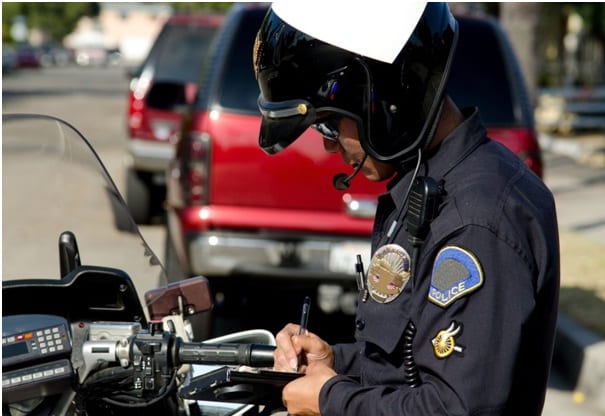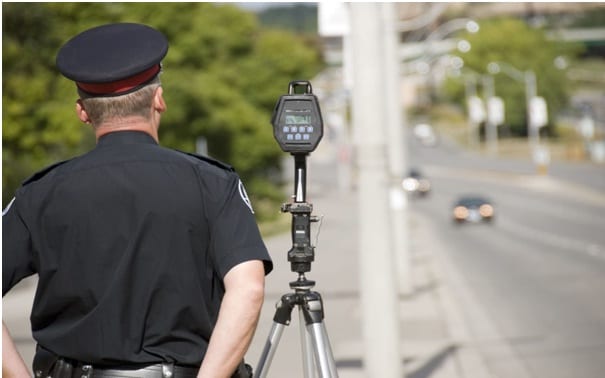Traffic engineers recently discovered that in the greater Chicago area, almost no one actually adheres to posted speed limits. In fact, they reported that in the first minute of their tests, “10 of 14 vehicles exceeded 70 mph. One reached 91 mph — all in a zone where the posted speed limit is 55 mph.”
It’s not hard to imagine that this is also the case in most parts of the United States. Most of us live by the “10 Mile” rule: we think it’s OK to drive about 10 miles over the speed limit, because that’s not really speeding, right? This means that most of us travel anywhere from 60-70 miles an hour in a 55 mile per hour zone. For most of us, when we get a speeding ticket, we probably deserve it!
But if exceeding the legal speed limit is so routine among drivers, that doesn’t mean getting out of a speeding ticket is as simple – most of us cannot manage the cost of paying a speeding fine or hiring a speeding ticket attorney. On this useful page from esurance.com, it’s easy to find out the average cost of a speeding ticket in the United States ($150.00), and the states where tickets can cost you up to $2500.00 in fines (Virginia and Illinois). In many cases, writing a check for a few hundred dollars and forgetting about a speeding ticket is simply not an option, and thousands of dollars in fines can be economically devastating.
So how should you respond if you get a speeding ticket, since statistics show that at some point or another it’s likely you’ll see those flashing lights in the rear view mirror and have to suffer the penalty for chronic speeding?
- First, realize that you really should fight the ticket. Many states assess points to driving violations, and too many points can result in a loss of license. Most drivers don’t contest their tickets, though, because they fear the expense, even though it might end up costing more in the long run.
- Second, understand that you don’t necessarily need a speeding ticket lawyer to get out of a ticket. The Internet offers plenty of information on how to fighta speeding ticket, even on a state-by-state basis. Do some research and see if you can handle the matter yourself; if your case is complicated enough, it might be worth hiring a speeding ticket lawyer, especially since you are at risk oflosing your license.
- Third, admit that you were speeding. This seems counterintuitive, but it often works. As one law student explains, “If you know you broke the law, admit it vehemently and tell the officer that he was completely right for pulling you over. Honest officers will admit that there is a lot of pride in police work, and, if you can sufficiently satisfy the pride factor, sometimes officers don’t think it necessary to punish you any further. The better you make the officerfeel;the more likely he’s going to like you enough to let you go.” And even if the officer still issues a ticket, your honesty may help you get the lowest possible fine.
- Fourth, challenge the method of speed detection. Police detect speeding through several different methods: pacing, aircraft, radar, laser, and VASCAR (Visual Average Speed Computer and Recorder). None of these methods are foolproof, and it is very important that when you get a ticket, you find out what method the officer used. When you get to court, you can then challenge it. Most police officers issue so many tickets that, if you’re lucky, they may not be able to recount your case specifically.This page on Nolo explains how to fight the various methods by which police track speed.
- Be polite and respectful at all times. Whether you are dealing with the officer on the road orthe judge in court, the old saying “you catch more flies with honey than with vinegar” definitely applies here. They are more likely to believe that you are a law-abiding citizen who made a rare mistake if you are calm than if you start cursing everyone out.
Whatever you do, remember that it is always best to contest the ticket than to simply pay the fine—even if you know you’re as guilty of exceeding the posted speed limit as the rest of us! In the long run, the time and energy it takes to gather all the information about your ticket or go to court may well save you thousands of dollars.
About the Author
Attorney Mike Schlosser represents victims of personal injury, those charged with a crime, as well as those facing traffic charges. A former Guilford County, North Carolina District Attorney, Schlosser has been in private practice at the Law Firm of Schlosser & Pritchett since 1983 and has been a member of the North Carolina State Bar since 1973.










